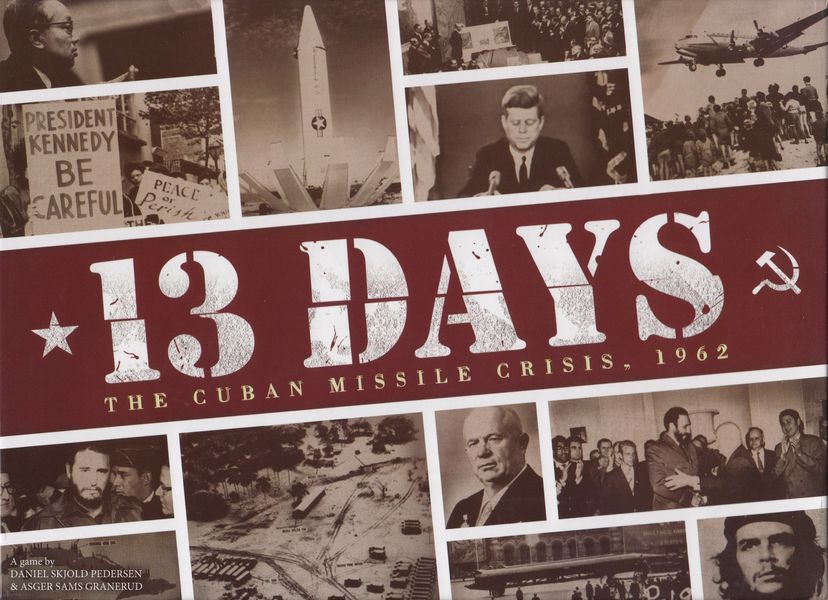13 Days: The Cuban Missile Crisis, 1962 (2016) Board Game
13 Days: The Cuban Missile Crisis, 1962 is a board game that simulates the tense political and military standoff between the United States and the Soviet Union during the Cuban Missile Crisis of
Game Components of 13 Days: The Cuban Missile Crisis, 1962
How To Setup 13 Days: The Cuban Missile Crisis, 1962
To set up the game, place the game board on the table and determine which player controls the US (blue) and the USSR (red). Each player takes all 17 influence cubes in their color and their 3 flag counters. Place 1 blue influence cube in both Italy and Turkey, and 1 red influence cube in both Berlin and Cuba (military) as indicated on the board. Set the round marker on the first space of the round track, and the Prestige marker in the middle of the Prestige track. Place the 3 blue and 3 red defcon markers on the starting spaces of the defcon tracks. Shuffle and deal the agenda cards and strategy cards, with the US player starting with the Personal letter card face-up.
Gameplay Mechanics and Game Objective
Player Experience
**13 Days: The Cuban Missile Crisis, 1962** offers a tense and strategic gameplay experience, simulating the high-stakes environment of the Cuban Missile Crisis. Players must balance their influence across multiple fronts while keeping their true objectives hidden. The game requires careful planning and strategic card play, making it engaging and challenging for players.
Pros
Cons
Personal Thoughts on 13 Days: The Cuban Missile Crisis, 1962
This game is ideal for those interested in historical events, particularly the Cold War, and fans of strategic card-driven games. It provides a unique blend of area control and influence placement, making it a great choice for players looking for a challenging yet relatively short game. However, it may not appeal to those seeking games with larger player counts or more complex, detailed game boards.
We are supported by our audience. When you purchase through links on our site, we may earn an affiliate commission, at no extra cost for you. Learn more.

